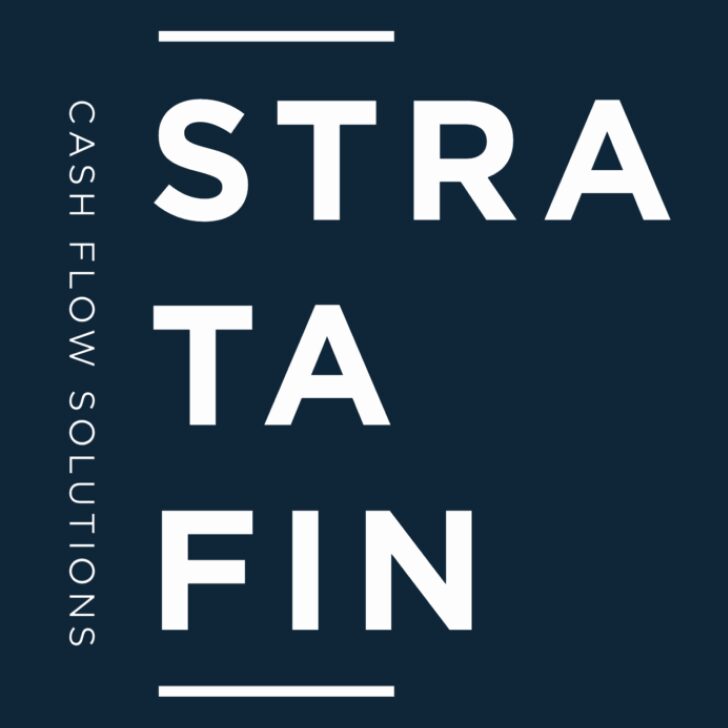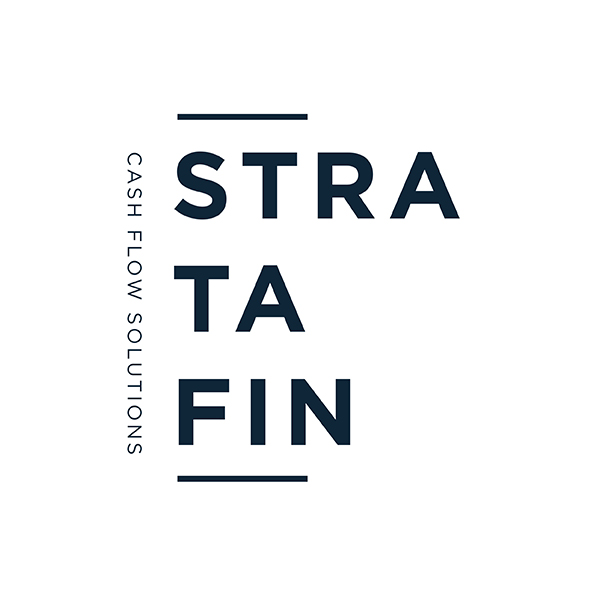Introduction
The judgment handed down on 23 September 2021 in the case of The Body Corporate of Marsh Rose SS No. 269/2012 v Steinmuller and others, where the court was inter alia tasked to interpret section 15B(3)(a)(i)(aa) of the Sectional Titles Act 95 of 1986 (“ST Act”), would appear to have the effect of watering down the security offered (“the embargo”) to bodies corporate in terms of the mentioned section 15B(3)(a)(i)(aa) to withhold the levy clearance certificate for a unit that has outstanding monies owing.
Body Corporate’s responsibility to collect levies
In terms of section 3(1) of the Sectional Titles Schemes Management Act 8 of 2011 (STSM Act”) the body corporate must establish and maintain an administrative and reserve fund and require owners to make contributions to such funds that are reasonably necessary and sufficient to cover the estimated annual operating costs and future maintenance and repair of common property. The body corporate must determine such amounts to be raised and then raise and collect the amounts by levying contributions on the owners. These contributions become due when the trustees pass a resolution to that effect in terms of section 3(2) and (3) of the STSM Act.
In terms of the Prescribed Management Rule contained in Annexure 1 to the Regulations of the STSM Act (“PMR”) 25(1) the body corporate must within 14 days after the approval of the annual budget at the AGM give the members notice of their liability to pay the contributions levied and this notice must include the obligation to pay; specify the due date for payment; state that interest at a rate specified will be payable on any overdue contributions and charges; and include details of the dispute resolution process that applies in respect of disputed contributions and charges.
Collection of outstanding levies
Final notice
In terms of PMR 25(2) where money owing is not paid on the date specified in the notice, the body corporate must send a final notice that must set out the interest that is payable in respect of the overdue contributions and charges at the date of final notice; and the amounts that will accrue daily until payment is made; and that the body corporate intends to take action to recover the amounts due if the overdue contributions, charges and interest are not paid within 14 days after the date of final notice is given.
Interest
In terms of PMR 21(3)(c) the body corporate may on the authority of a written trustee resolution charge interest on any overdue amount payable by a member to the body corporate, but the interest rate must not exceed the maximum rate of interest payable per annum under the National Credit Act of 2005, compounded monthly in arrear.
Legal costs
In terms of PMR 25(4) a member is liable and must pay the body corporate all reasonable legal costs and disbursements, as taxed or agreed by the member, incurred by the body corporate in the collection of area contributions or any other arrear amounts due and owing by such member to the body corporate.
Withholding payment on disputed amounts
An owner is not allowed to withhold their payment of the contributions if the amount claimed is disputed. A person is only entitled to set off a liquid debt once the matter has been adjudicated. The correct procedure to follow is to dispute the amount in an application to the Community Schemes Ombud Service. In terms of section 39(1)(c) of the Community Schemes Ombud Service Act 9 of 2011 (“CSOS Act”) an applicant can bring an application for an order declaring that a contribution levied is incorrectly determined or unreasonable, and an order for the adjustment of the contribution to a correct and reasonable amount.
Collection procedure at Community Schemes Ombud Service
Section 3(2) of the STSM Act states that levies may be recovered by the body corporate by an application to an ombud from the persons who were owners of units at the time the resolution raising the levies was passed, provided that upon change of ownership of a unit, the successor in title becomes liable for the pro-rata payment of such contributions from the date of change of such ownership.
Collection procedures in court
Where a member fails to pay the body corporate all monies due the body corporate must follow the procedure set out in section 66 of the Magistrates Court Act 32 of 1944 read with Rule 36 for the attachment and sale in execution of the movable property of the owner against whom the judgment is obtained.
Where the member’s movable property is insufficient to cover the debt to the body corporate, the body corporate will have to resort to the last resort and most severe mechanism for the recovery of the debt which is the attachment and sale in execution of the unit in the scheme as set out in section 66(1)(a) of the Magistrates Court Act 32 of 1944 read with Rule 45(1) of the Uniform Rules of the High Court.
Body Corporate’s security for the payment of arrear levies
The ST Act provides the body corporate with a security provision (“embargo”) that restrains the registrar from registering transfer of a unit before all monies due to the body corporate are paid or provision for payment has been made. More specifically section 15B(3)(a)(i)(aa) of the ST Act states that:
“The registrar (of deeds) shall not register a transfer of a unit or an undivided share therein unless there is produced to him – (a) a conveyancer’s certificate confirming that as at date of registration – (i)(aa) if a body corporate is deemed to be established in terms of section 36(1), that body corporate has certified that all monies due to the body corporate by the transferor in respect of the said unit have been paid, or that provision has been made to the satisfaction of the body corporate for the payment thereof.”
Recent case law
The Body Corporate of Marsh Rose v Steinmuller involved the interpretation of this security embargo. The appellant is the body corporate and the respondent is the purchaser of a unit in the scheme at a sale in execution. The body corporate refused to furnish the levy clearance certificate until the outstanding amount of monies due was paid by the current registered owner. The money owed did not constitute exclusively outstanding levies owed, but included a judgement debts and un-taxed legal costs against the registered owner pursuant to a debt in respect of the property. The applicant contended that the intention of the embargo is to secure payment of all amounts owing in respect of the unit upon transfer of the property, and the amount owing cannot be decided on subsequent to the provision of the clearance certificate as was decided by the court a quo.
Court a quo
The purchaser disputed the amount claimed by the body corporate and tendered to give security in the amount of R150 000 for the clearance certificate to be issued. The body corporate refused to accept such security on the basis that it was insufficient in both amount and form.
The purchaser’s attorneys requested ledgers on the amounts owed, the minutes of meeting regarding the levies claimed and the trustee resolutions raising the interest on arrears. The body corporate refused such information on the basis that the purchaser accepted to pay all amounts outstanding to the body corporate when it signed the conditions of sale, and is not yet a member of the body corporate entitled to such information.
The purchaser therefore applied to the court for an order directing the body corporate to furnish the clearance certificate against payment into his attorneys trust account of an amount as security for any amount it may recover in an action or arbitration to be initiated within 10 days of the granting of the order. In this regard it is stated at para 15 that:
“More particularly, this court is satisfied that subsection 15B(3)(a)(i)(aa) of the Act does not (as argued by the body corporate) entitle a body corporate to embargo the transfer of a sectional title unit simply on the basis that it alleges an amount is due to it by any party or parties. This is particularly so where that body corporate (as in the present case), declines to provide the party who has purchased that unit with sufficient information and documents to establish the veracity of the body corporate’s claims…” .
The court ordered that the purchaser place R250 000 in its attorneys’ trust account and that the body corporate must then institute proceedings against the purchaser, and any other party, for amounts owing against the property. If the body corporate failed to timeously institute such proceedings, then the security would be paid back to the purchaser.
Majority decision
In the majority judgment Matojane J and Nichols AJ stated that it is the body corporate’s case that “amounts due” in terms of the embargo includes any amount owing to it, and the amount should first be determined, then payment or provision be made and then only would the clearance certificate be issued [para 12]. The body corporate further submitted that the amount the court a quo ordered be placed in trust should include the legal costs for the judgment that the body corporate obtained against the registered owner [para 14]. The Judges did not agree with this submission and clearly stated that the words of the statute do not support this interpretation [para 13].
It is then stated that when interpreting statutes the words in the statute must be given their ordinary meaning in accordance with the context in which they are found, and that consideration must be given to the purpose of the provision and the material known to those responsible for its production [para 16]. The Judges said that when the embargo is interpreted in a common-sense and businesslike manner it gives the transferee the opportunity to avoid payment under protest where the amount is disputed by making provision for the payment instead. This avoids unnecessary and costly litigation to claim what is not due [para 17]. Monies due to the body corporate are capable of being disputed on bona fide grounds, which could be an obstacle to the transfer of the property and the embargo could amount to an arbitrary deprivation of property where substantial amounts are disputed [para 18].
The court a quo admitted that the transferee was only indebted in respect of arrear levies which only arise on transfer, and nothing prevents the body corporate from joining other parties to an action or arbitration to claim other monies due to it [para 19]. It was not the intention of the legislation to allow bodies corporate to raise charges to an account of the owner without any lawful right to do so, and to embargo transfers indefinitely to secure payment of the disputed monies that may turn out not to be due [para 20].
There is no particular form that security must take and the body corporate is not required to satisfy itself by any particular method or means of security provided [para 21]. The decision of the body corporate is amenable to challenge if the body corporate does not act in good faith, refuses to exercise any real discretion or if the discretion is exercised in a manner that is prejudicial to the interest of the owner. A dispute about of the amount of the charges that must be settled before a municipal rates clearance certificate is issued can be a justiciable issue and this was used to support the view that if the items are disputed a court can intervene to determine satisfactory security for purposes of unlocking the transfer if the body corporate does not do so. [Para 22] The body corporate must exercise its discretion according to rules of reason and justice. The body corporate’s decision to reject the security must be based on reasonable grounds and the onus rests on the body corporate to prove those disputed amounts [para 23]. It cannot contend for payment to be made “under protest” as this unlawfully shifts the onus to the person making the payment It was held that the court a quo was correct in finding that the payment provision was objectively reasonable and the body corporate ought to have been satisfied with the security offered and issued the clearance certificate [para 24].
The body corporate has taken upon itself the power to unlawfully raise to the account of the owner amounts which are not due to it, thereby exercising its discretion in a manner prejudicial to the purchaser’s interest [para 25]. The body corporate conceded that it had no claim against the purchaser save for arrear levies at the commencement of the hearing in the court a quo. But the body corporate still argued that it was entitled to apply the embargo until all the charges were paid by refusing to issue the clearance certificate [Para 26].
The court states that the liability for levies is the incident of ownership of a sectional title unit and is a burden that attaches to such ownership The court goes further and states that the amount of R43k being legal costs in respect of which the body corporate has taken judgment against the owner and has attached the property in execution, is not a burden on the unit as the nature of the debt has changed. The court goes deeper and states that the judgment debtor (the registered owner) remains personally liable for the debt and costs, and his credit rating is impugned thereby. The body corporate cannot claim the same amount again from the purchaser as it has done [Para 27]..
The Judges state that the body corporate are claiming collection and legal costs that have not been taxed in terms of section 25(5) of the STSM Act [should read PMR 25(5)], and accordingly these amounts are unlawfully levied and not due [para 28].
The body corporate charged interest on un-taxed legal fees and unlawfully varied the court order and charged interest at 24% compounded monthly which meant that the amounts due exceeded the capital amount which goes against the in duplum rule [para 29]. The body corporate failed to provide the trustee resolutions authorizing interest on overdue amounts in terms of PMR 21(3), and was not entitled to charge the inflated interest on overdue amounts [para 30 and 31]. The body corporate failed to provide the resolutions for raising the levies in terms of section 3(2) of the STSM Act, and therefore they were not due and payable [para 32].
The Judges conclude by stating that they do not understand why the body corporate is claiming from the transferee when section 3(2) of the STSM Act states that levies may be recovered by the body corporate by an application to an ombud from the persons who were owners of units at the time the resolution raising the levies was passed [para 33]. It was therefore decided that the Court a quo was entitled to assess whether the security tendered by the transferee was sufficient to oblige the body corporate to issue the clearance certificate under the circumstances, and the appeal was dismissed with costs [para 34 and 35].
Minority decision
In the dissenting judgment Adams J stated that on the proper interpretation of the embargo and relevant case law the body corporate were entitled to refuse to grant the levy clearance certificate if in its view there are monies due to it in relation to the unit that forms the subject of the transfer para 36]. It is made clear that the unlawfulness is the fact that the body corporate is deprived of contributions in respect of the unit, and not the fact that the amounts claimed are disputed para 37].
The Judge succinctly states that the issue at question is whether the body corporate is entitled to refuse to issue the clearance certificate in the circumstances where the amount is in dispute [para 38]. In the circumstances of this case no money had been paid for contributions and charges from when the previous owner had taken transfer of the unit. Therefore it was reasonable that interest and collection charges had been added to the account. Furthermore, certain amounts were added to make provision for contributions for the period between judgment and transfer to be registered. The purchaser disputed these costs which clearly related to collection charges and legal fees necessitated by the fact that the registered owner had defaulted on payments of all contributions and charges from inception of ownership [para 40-45].
The Judge then looked to case law [Barnard No v Regspersoon van Aminie en ander 2001 (3)SA 973 (SCA)] in which the SCA held that giving expression to the intention of the embargo giving the body corporate effective protection it was clear that legal charges and costs fall within the ambit of the embargo as being part of “all monies owing” [para 46]. In regard to the taxation of the legal costs the Judge reiterated that if the purchaser insists that the legal costs be taxed, he agreed that it should be done before the clearance certificate is issued. The Judge also states that he is not convinced that the interest charged was in breach of the in duplum rule. He further puts the prescription argument to bed in that the body corporate had obtained judgement from the registered owner para 48].
It is stated that the purchaser should have paid the amounts claimed under protest or made an application for a declaratory order on the lawful amount. The judge emphasized the point the body corporate were unfairly deprived of the security and protection afforded by the embargo, and that the body corporate were left to subsidize all the charges and contributions relating to the unit [para 49 and 50].
The Judge then interpreted the wording of the embargo to be preemptory – that the payment of all monies due to the body corporate must be preceded by the registration of transfer [para 52 and 53]. Adams J goes on to refer to Nel v Body Corporate of Seaways Building and another 1996 (1) SA 131 (A) as authority for the interpretation of the embargo as a veto provision which creates general security for a debt to a body corporate, and that the practical effect is that the body corporate will receive payment before transfer. The embargo, therefore, serves a vital and legitimate purpose, and ensures the continued supply of services and the economic viability and sustainability of the bodies corporate in the interest of all its members. The body corporate may reduce the amount it recovers, but is not obliged to do so [paras 55 and 56].
The Judge brought attention to the difficulties experienced by bodies corporate with defaulting members and the corresponding socio-economic problems that must follow [para 57]. He then states that the Court’s interpretation is incorrect that the embargo gives effect to the principle that the written instrument must be interpreted sensible and cannot be interpreted to give unbusinesslike results. The fact that the amount due to the body corporate which changes and increases on a monthly basis should be allowed to be the subject of a dispute and litigation before being paid, while allowing the transferee is effectively being allowed to be exempted from paying what is owed to the body corporate. This is not the intention of the legislature as it prejudices the body corporate, which is not very businesslike. The embargo is explicit and preemptory and exact compliance is required. The body corporate was entitled to embargo the transfer as monies due to it had not been paid [paras 58-61].
The Judge then concludes by saying there is another reason why the order of the court a quo should not be confirmed, and turned to the interpretation of “provision for payment” and stated that provision for payment must have the exact same effect of payment – the body corporate should have payment before the unit is transferred, which is not the case if security is offered [paras 63-65].
Evaluation
It is evident from the outset that, in collecting arrear levies at the transfer of an owner’s unit, there may be instances where the amount claimed by the body corporate may be disputed. The effect of the embargo cannot be watered down merely on the basis that there is a dispute on the amounts due. To ensure that the amounts are due and owing, the body corporate will need to place itself in a position to justify “all monies due”, with sufficient supporting documents, decisions, and resolutions to be placed in the best position to claim arrear levies.
For example, when a body corporate makes an application to the ombudsman or court for the collection of arrear levies, they need to fill in a prescribed application form accompanied by inter alia the following supporting documents:
- The signed trustee resolution authorising the raising of contributions [sections 3(2) and (3) of the Sectional Titles Schemes Management Act 8 of 2011 (the ‘STSM Act”].
- The notice sent to owners following the AGM confirming the contributions payable [PMR 25(1)].
- The final demand sent to the owner requesting payment [PMR 25(2)].
- A copy of the owner’s complete levy statement, from a zero balance until the claimed amount.
- The signed trustee resolution charging interest on any overdue amount [PMR 21(3)(c)], if applicable.
These supporting documents are necessary to show that the contributions are due and owing, and therefore to ensure that the body corporate can prove its claim.
In my view, on an interpretation of “all monies due” in terms of 15B(3)(a)(i)(aa) of the ST Act, the court erred in their interpretation of the aforesaid statutory provision. The majority decision placed their focus on the fact that the embargo needed to be interpreted in a common-sense and businesslike manner. The interpretation of legislation must go further than this.
I wrote an article with Professor Graham Paddock that dealt with the interpretation of rules, which sets out the interpretation principles. When interpreting legislation, the golden rule is applicable – that the text read, as a whole and taken in context, must be given its ordinary, literal and grammatical meaning (its plain meaning). In this regard, authoritative dictionaries may be referred to in the enquiry, one seeks to establish the intentions of the legislator. The enquiry begins with looking at the text of the law to find whether the intention of the legislature will be clear from the provision.
In my view, the wording of the embargo should include all costs incidental in the collection of levies, including collection costs, legal fees, and interest (where these costs can be supported by supporting documents and/or resolutions). This interpretation is confirmed in Barnard No v Regspersoon van Aminie en ‘n Ander 2001 3SA 973 (SCA) paras 18-19, where it was clearly stated that monies due to the body corporate did not only include levies but also included legal costs incurred to recover the levies due on a unit.
Albeit that a member can insist on the collection costs and legal fees to be taxed, this needs to be done before the amounts due are paid and the levy clearance certificate issued, as the wording of the embargo is preemptory, and transfer cannot take place until all monies due are paid. Where monies owing is in dispute or need to be taxed, this must be dealt with before the clearance certificate is issued, and transfer is registered.
Furthermore, a judgment debt collected in pursuance of the collection of arrear levies remains so closely related to the collection of all monies due, that its nature cannot change. The sale in execution of the unit occurred because the registered owner had insufficient funds to satisfy the payment of arrear levies and associated costs in their collection. To state that the debt is not a burden on the unit waters down the amount that a body corporate can claim from the proceeds of a sale in execution. The fact that the judgment debtor remains personally liable means that the body corporate retains a claim against a person who will be unable to repay as their credit rating has been impugned. The security that is offered by the fact that the unit cannot be transferred is reduced if the member is allowed to cease to be a member of the body corporate. The body corporate will then be forced to initiate further applications or actions to recover those amounts. The protracted litigation and further legal costs will certainly prejudice the remaining members of the body corporate.
If the intention is clear, that is the end of the enquiry. However, where the intention is still not clear from the text, then it is necessary to use additional rules, guidelines, principles, or presumptions of interpretation. There is no established hierarchy of these presumptions. The courts are flexible in their approach and often exercise discretion.
There are also several additional presumptions regarding the intention that underlies a rule. It is presumed, for example, that the rule is intended to advance the community’s best interests. There are also presumptions against:
- absurd results;
- harsh, onerous, unjust, inequitable, or discriminatory treatment; and
- retrospectivity (regulating an action taken before the provision became effective).
Another principle of interpretation that must be used is the mischief rule. This interpretative tool looks at what mischief the law or rule is meant to remedy and prefers a meaning that achieves that objective. In my view the intention of the legislature is clear and that the mischief that is sought to be avoided, is that a unit can be transferred before all monies due are paid to the body corporate. This prevents the body corporate from losing any claim to the recovery of arrear levies and charges. It cannot be defeated merely on the basis that there is a dispute on the amounts due. This would create absurd results as set out above.
Finally, the principle of stare decisis can also apply in the case of judicial interpretation of a rule. A lower court is bound by an interpretation of a higher court, and a court must consistently follow its previous interpretations. In this way the court a quo was bound by interpretation “all monies due” of the SCA case – Barnard No v Regspersoon van Aminie en ‘n Ander 2001 3SA 973 (SCA).
An important point to be made is that in the circumstances of this case the conditions of sale at the sale in execution stated that the purchaser would be liable for levies in terms of the ST Act but did not include the other charges such as legal fees. A contract between the seller and purchaser cannot supersede the body corporate’s legislative protection offered by the embargo. The body corporate is not a party to the conditions of sale and is not bound to its terms but is entitled to the full protection of the law applicable to its operation, more specifically the embargo contained in the ST Act.
The concluding remarks by the majority decision of the court that the body corporate should have claimed the money from the registered owner using the CSOS application procedure failed to consider that the Sectional Titles Schemes Management Act 8 of 2011 and the Community Schemes Ombud Service Act 9 of 2011 only came into operation in 2016, and the ombudsman was only established thereafter. Applications for the collections of arrear levies could only be made sometime thereafter. The registered owner took transfer of the property in 2014, and never made any payments to the body corporate. At that time the body corporate had to collect the arrear levies through court action. Once the court actions were set in motion (attachment of movable property and sale in execution of the unit), the ombudsman was no longer the appropriate forum to collect the arrear amounts.
Furthermore, the wording of section 3(2) of the STSM Act is not preemptory, it states that levies may be recovered by the body corporate by an application to an ombud from the persons who were owners of units at the time the resolution raising the levies was passed. Therefore, the body corporate can choose whether to use the CSOS procedure or make use of the court procedures. This will be a tactical decision by the body corporate depending on the financial position of the defaulting member, and whether the last resort recovery procedure of sale in execution of the unit is necessary.
In light of the above, I hold the opinion that the Court in the full bench decision has erred in respect of its judgment limiting the embargo and made factual errors in respect of the interest rate applicable, legal fees charged, and the forum for collection.
Written by Dr. Carryn Melissa Durham of Stratafin
BA (Law) LLB LLM LLD
Specialist Property Attorney












